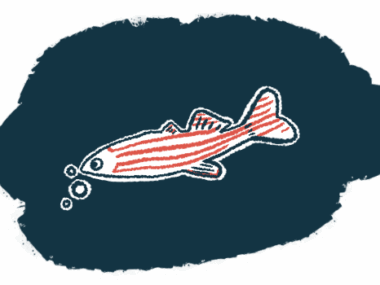Voyager Therapeutics reassesses SOD1-ALS gene therapy program
Development of VY9323 stopped amid toxic effects in nonhuman primate study
Written by |

Voyager Therapeutics will reassess its gene therapy program for amyotrophic lateral sclerosis (ALS) associated with mutations in the SOD1 gene after its original candidate, VY9323, was found to have toxic effects in nonhuman primate studies.
The company believes the problem lies with the therapy’s payload and not the viral carrier used to deliver it to cells. As a result, VY9323’s development will be discontinued and Voyager will evaluate other potential payloads to advance the program in ALS. Voyager had planned to seek an application this year to test the therapy in clinical trials in the U.S. and Canada.
“While we are disappointed that the development candidate VY9323 will not advance, we hope that we may be able to identify an alternate payload and find a path forward for this program, given the unmet need in ALS,” Alfred W. Sandrock, Jr., MD, PhD, Voyager’s CEO, said in a company press release.
Voyager plans now to provide an update on the revised timeline for its SOD1-ALS gene therapy program once further evaluations are complete.
Mutations in the SOD1 gene account for up to 1 in 5 cases of familial ALS and up to 1 in 50 cases of sporadic ALS. The mutations result in an abnormal SOD1 protein that forms toxic clumps in nerve cells, damaging them and leading to ALS symptoms.
Gene therapies use modified and harmless viruses to deliver a payload to cells that change the activity of a specific gene and the resulting protein’s production.
Designed with Voyager’s TRACER AAV capsid discovery platform, VY9323 consists of an adeno-associated virus (AAV) capsid, or viral protein shell, to deliver a small interfering RNA, or siRNA, that binds to SOD1’s messenger RNA (mRNA), the intermediate molecule derived from DNA that guides protein production. By binding to the gene’s’s mRNA, the siRNA promotes its breakdown, preventing the abnormal SOD1 protein from being produced.
The trouble with VY9323
Newly-announced interim, three-month data from a nonhuman primate study showed that VY9323 has off-target effects, meaning it affects other genes besides SOD1.
According to a presentation at a recent conference, none of the tested VY9323 doses caused toxicity in the liver or other organs, a common complication of AAV-based gene therapies.
Higher doses significantly reduced SOD1 mRNA levels — by about 60% — across multiple regions of the brain and spinal cord. However, these doses led to late-onset nerve cell toxicity, including tremors, nerve fiber loss, and increases in neurofilament light chain (NfL), a nerve damage biomarker.
At lower doses, no adverse events were observed, but the reduction in SOD1 mRNA levels was insufficient to achieve the desired therapeutic effect.
Voyager believes the observed neurotoxic effects are related to VY9323’s off-target effects, particularly of the therapy’s siRNA payload. This conclusion is based on the fact that similar primate studies of VY1706, the company’s candidate for Alzheimer’s disease that uses the same AAV capsid, showed no safety problems.
“Emerging preclinical data indicate the siRNA payload component of VY9323 does not meet our high standards due to what appears to be an off-target effect resulting in a narrowed therapeutic window,” Sandrock said.
Voyager is now exploring alternative SOD1-targeting siRNA that may offer good safety and efficacy, while maintaining the same AAV capsid. The company remains on track to file applications for clearance to start testing its gene therapy candidates for other brain and spinal cord diseases in clinical trials. These include candidates for Alzheimer’s, Parkinson’s disease associated with GBA1 mutations, other GBA1-related diseases, and Friedreich’s ataxia.






